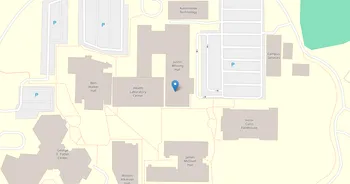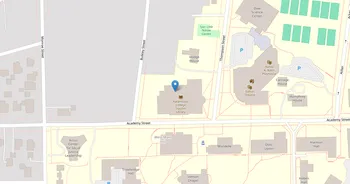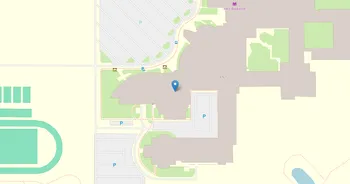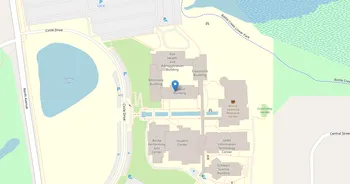Hope College : Overview, Courses, Scholarships & Rankings
About Hope College
A long-running tug-of-war called The Pull hints at the campus spirit: competitive, quirky, tight-knit. Hope College is known for strong teaching across the sciences, arts, humanities, and business-related areas, with plenty of chances to work alongside professors on real projects. Classrooms, labs, studios, and performance spaces feel purpose-built yet welcoming, and the library anchors serious study. Students find support through advising, tutoring, wellness and counseling, and a career center that actually knows their names.
Life here leans outdoors and downtown. Lake Michigan is close enough for beach runs, quiet sunsets, and brisk-weather hikes, while Holland's storefronts, coffee spots, and arts venues offer internships and weekend breathing room. Campus culture reflects a Christian heritage and has a reputation for pairing intellectual curiosity with service and community. Clubs, concerts, intramurals, and late-night rehearsals keep the week full. Graduates tap a loyal Midwest network, and alumni like Pete Hoekstra and A. J. Muste suggest the range of paths that begin here.
Key Institutional Details
Contact & Profile
Academic & Institutional
Academic Programs & Fields of Study
Hope College offers 54 degree programs across 21 major academic fields, graduating approximately 822 students annually. The most popular fields by graduate volume are Business (4 programs, 145 graduates), Education (12 programs, 94 graduates), Psychology (1 programs, 88 graduates), Biological Sciences (3 programs, 65 graduates) and Engineering (1 programs, 59 graduates). Explore program details, award levels, and graduate demographics below.
Business (4 programs, 145 graduates)
Business Administration, Marketing and Entrepreneurship
| Program Name | Graduates | Gender Distribution | Award Levels | CIP Code |
|---|---|---|---|---|
| Business Administration and Management | 114 |
|
Bachelor's
|
52.0201 |
| Accounting | 13 |
|
Bachelor's
|
52.0301 |
| Accounting and Business Management | 10 |
|
Bachelor's
|
52.0305 |
| Business Economics | 8 |
|
Bachelor's
|
52.0601 |
Education (12 programs, 94 graduates)
Educational Sciences, Teaching Methods and Pedagogy
| Program Name | Graduates | Gender Distribution | Award Levels | CIP Code |
|---|---|---|---|---|
| Elementary Education | 28 |
|
Bachelor's
|
13.1202 |
| Teaching Students with Specific Learning Disabilities | 15 |
|
Bachelor's
|
13.1011 |
| English Language Arts Teacher Education | 15 |
|
Bachelor's
|
13.1305 |
| Social Studies Teacher Education | 9 |
|
Bachelor's
|
13.1318 |
| Education of Individuals with Emotional Disturbances | 6 |
|
Bachelor's
|
13.1005 |
| Physical Education Teaching and Coaching | 5 |
|
Bachelor's
|
13.1314 |
| Science Teacher Education | 5 |
|
Bachelor's
|
13.1316 |
| Mathematics Teacher Education | 3 |
|
Bachelor's
|
13.1311 |
| Spanish Language Teacher Education | 3 |
|
Bachelor's
|
13.1330 |
| Music Teacher Education | 2 |
|
Bachelor's
|
13.1312 |
| History Teacher Education | 2 |
|
Bachelor's
|
13.1328 |
| Art Education | 1 |
|
Bachelor's
|
13.1302 |
Psychology (1 programs, 88 graduates)
Psychological Sciences, Mental Health and Behavioral Studies
| Program Name | Graduates | Gender Distribution | Award Levels | CIP Code |
|---|---|---|---|---|
| General Psychology | 88 |
|
Bachelor's
|
42.0101 |
Biological Sciences (3 programs, 65 graduates)
Life Sciences, Biotechnology and Biomedical Research
| Program Name | Graduates | Gender Distribution | Award Levels | CIP Code |
|---|---|---|---|---|
| Biology and Biological Sciences | 46 |
|
Bachelor's
|
26.0101 |
| Neuroscience | 11 |
|
Bachelor's
|
26.1501 |
| Biochemistry and Molecular Biology | 8 |
|
Bachelor's
|
26.0210 |
Engineering (1 programs, 59 graduates)
Engineering Sciences and Applied Technology Solutions
| Program Name | Graduates | Gender Distribution | Award Levels | CIP Code |
|---|---|---|---|---|
| General Engineering | 59 |
|
Bachelor's
|
14.0101 |
Communication (1 programs, 53 graduates)
Media Communications, Journalism and Public Relations
| Program Name | Graduates | Gender Distribution | Award Levels | CIP Code |
|---|---|---|---|---|
| Speech Communication and Rhetoric | 53 |
|
Bachelor's
|
09.0101 |
Health (2 programs, 48 graduates)
Healthcare Professions, Medical Sciences and Clinical Practice
| Program Name | Graduates | Gender Distribution | Award Levels | CIP Code |
|---|---|---|---|---|
| Registered Nursing | 45 |
|
Bachelor's
|
51.3801 |
| International Public Health | 3 |
|
Bachelor's
|
51.2210 |
Social Sciences (3 programs, 44 graduates)
Sociology, Anthropology and Political Science Studies
| Program Name | Graduates | Gender Distribution | Award Levels | CIP Code |
|---|---|---|---|---|
| Political Science and Government | 25 |
|
Bachelor's
|
45.1001 |
| Sociology | 13 |
|
Bachelor's
|
45.1101 |
| Economics | 6 |
|
Bachelor's
|
45.0601 |
Languages (4 programs, 37 graduates)
Foreign Languages, Literature and Linguistic Studies
| Program Name | Graduates | Gender Distribution | Award Levels | CIP Code |
|---|---|---|---|---|
| Spanish Language and Literature | 16 |
|
Bachelor's
|
16.0905 |
| Classics and Classical Languages | 10 |
|
Bachelor's
|
16.1200 |
| German Language and Literature | 7 |
|
Bachelor's
|
16.0501 |
| French Language and Literature | 4 |
|
Bachelor's
|
16.0901 |
Philosophy (2 programs, 29 graduates)
Philosophical Studies, Ethics and Religious Thought
| Program Name | Graduates | Gender Distribution | Award Levels | CIP Code |
|---|---|---|---|---|
| Philosophy | 16 |
|
Bachelor's
|
38.0101 |
| Religious Studies | 13 |
|
Bachelor's
|
38.0201 |
Admission Requirements & Test Scores
Comprehensive overview of admission criteria, standardized test score ranges, and application requirements for prospective students at Hope College.
Application Requirements
Data based on IPEDS for 2022-2023 academic year. Test score ranges represent the middle 50% of admitted students (25th-75th percentile). Requirements may vary by program.
Tuition, Fees & Estimated Costs
Overview of tuition rates, housing, and other annual education expenses for undergraduate and graduate students
Financial Aid & Student Support
Summary of scholarships, grants, student loans, and financial aid statistics for undergraduate students
Student Success Metrics
Graduation rates and post-graduation earnings to help assess student outcomes and long-term value of education.
Loan Burden & Repayment Outcomes
Breakdown of loan repayment rates and student debt levels by income and dependency status.
Frequently Asked Questions
Find answers to the most common questions about Hope College
How much does it cost to attend Hope College?
The annual tuition at Hope College is $37,670 for in-state students. When including room and board, books, and other expenses, the total estimated cost is approximately $53,040 for in-state students. Additional costs include room and board $12,180 (on) / $3,450 (off) and books and supplies $1,150.
Data based on IPEDS program completions for 2022-2023 academic year. Tuition and cost estimates are approximate and may not include all fees, personal expenses, or transportation costs.
What academic programs and degree levels does Hope College offer?
Hope College offers 54 academic programs across 21 major fields of study, with available degree levels: Bachelor's.
Most popular program areas include:
- Business Administration, Marketing and Entrepreneurship (4 programs)
- Educational Sciences, Teaching Methods and Pedagogy (12 programs)
- Psychological Sciences, Mental Health and Behavioral Studies (1 programs)
- Life Sciences, Biotechnology and Biomedical Research (3 programs)
- Engineering Sciences and Applied Technology Solutions (1 programs)
Data based on IPEDS program completions for 2023-2024 academic year. Numbers reflect programs where students graduated, not all offered programs.
What is the acceptance rate for Hope College?
Hope College has an 75.9% acceptance rate and a 21.1% yield rate, making it selective.
Admission statistics breakdown:
- Total applicants: 5,206
- Students admitted: 3,949
- Students enrolled: 834
Data based on IPEDS for 2022-2023 academic year. Admission statistics may vary by program and application cycle.
What financial aid and scholarships are available at Hope College?
Hope College provides financial aid to 29% of first-time, full-time students, with average grants of $23,633 and average loans of $8,476.
Average financial aid amounts by type:
- Pell grants: $4,819
- State/Local grants: $2,946
- Institutional grants: $21,639
- Federal loans: $5,247
The university supports 926 students with grants and 436 students with loans annually.
Data based on IPEDS for 2022-2023 academic year. Financial aid amounts and percentages may vary by program, enrollment status, and individual circumstances.
What is the average salary for Hope College graduates?
Hope College graduates earn a median salary of $49,727 after 6 years and $58,427 after 10 years.
The salary range 10 years after graduation spans from $41,745 (25th percentile) to $82,041 (75th percentile).
Data based on IPEDS for 2022-2023 academic year. Salary data reflects graduates who received federal financial aid (approximately 60% of all graduates). Actual earnings may vary significantly based on program, location, and individual circumstances.
Related Universities




Found something useful? Help others discover it too! Share with friends, on social media, or save for later - every share helps someone find the information they need.